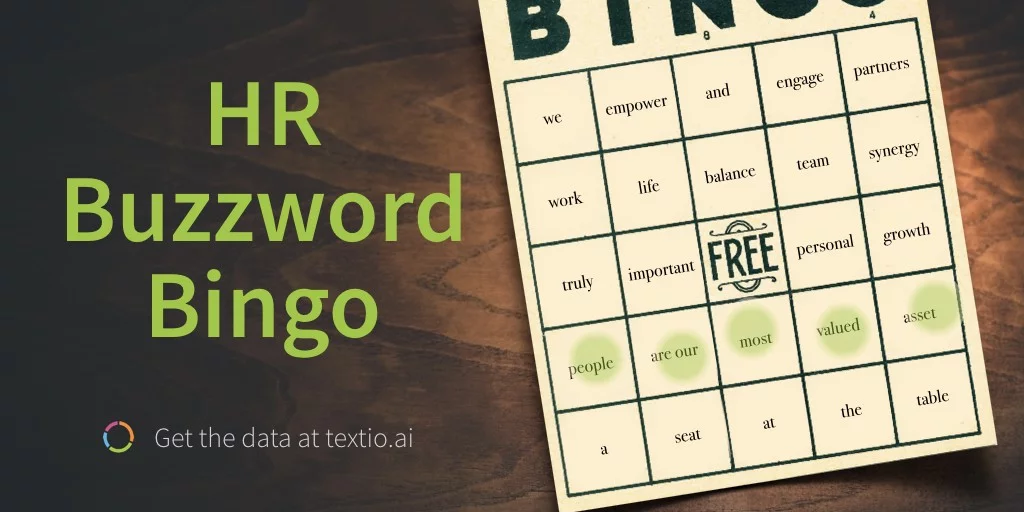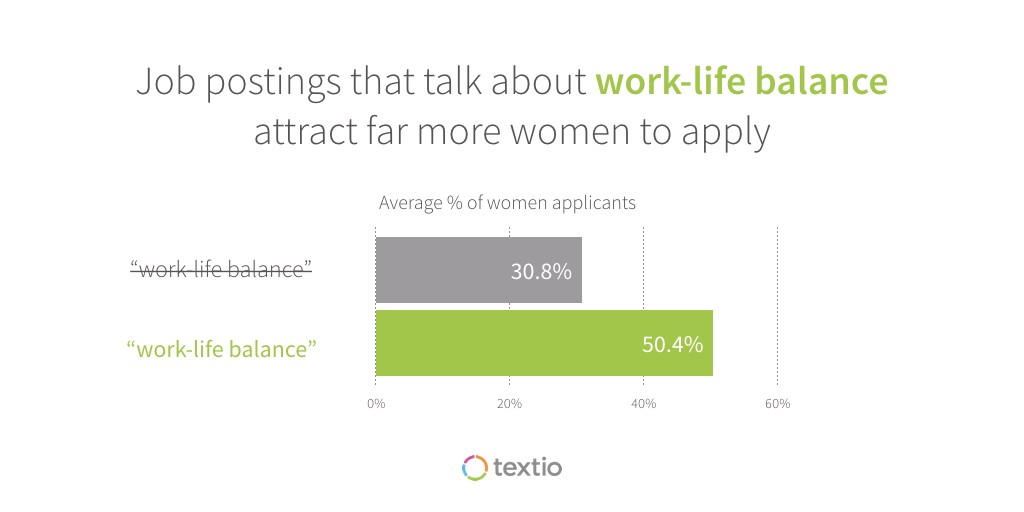HR buzzword bingo

The data behind Textio’s writing platform encourages us to avoid corporate clichés when crafting a job post. As we discussed in “How to hire a former president,” removing corporate jargon like “ideal candidate” can help improve the performance of your listing. Textio’s predictive engine has mined the language in over 70 million job postings and their outcomes to show which phrases attract more qualified and more diverse candidates, faster.
So I was very excited to see that today’s #Nextchat hosted by the Society for Human Resource Management with Mary Faulkner on Twitter was going to focus on HR catch phrases. In her original post, Mary outlined several different reasons why buzzwords don’t work — mainly that they are so vague and oft-repeated that they have become meaningless. Mary laid out a series of questions to all HR professionals to gauge their opinions on several HR buzzwords and what new terms might replace them. What better way to put Textio’s predictive engine to the test than to find out how these HR buzzwords perform in the real world?
Like my coworkers at Textio, I have a ton of opinions on this. But luckily, our predictive engine has more than just opinions, it has millions of data points around language and how it performs. I wanted to see if these catch phrases help or hurt when it comes to writing an effective job post. Quite honestly, I was surprised by what I found: many HR buzzwords are actually popular with candidates, and including them in a job post will help your job fill faster. And in some cases, they also tend to attract more women.
Many HR buzzwords are actually popular with candidates
One set of clichés Mary mentioned are the two phases “our people really do matter” and “employee engagement.” And while these may seem like similar buzzwords to HR professionals, their respective impact on job seekers is quite different. Both phrases decrease the time to fill a position, but the phrase “our people matter” cuts the time to fill in half.
![Bar chart. Header: How much faster does a job post fill if it includes these HR phrases? "war for talent": 60%, "our people [really do] matter": 51%, "employee engagement": 17.9%, "work-life balance": 14.1%, "seat at the table": *, "employees are our most [important or valuable] asset": *. *These two phrases are not statistically significant in the data](https://textio.com/hubfs/Imported_Blog_Media/1*7QdNz3ETIHUnRCjdZC_FUw-1.jpeg)
Mary’s second question revolved around the “war for talent.” Personally, I wondered if that phrase had grown passé, but Textio’s predictive engine is unequivocal — it has definitely not! Job listings with the phrase “war for talent” fill 22 days faster on average than job listings that don’t have it.
Job listing with the phrase “war for talent” fill 22 days faster
Another catch phrase Mary discussed was “work/life balance.” Is it fair to advertise work/life balance if expectations are that your employees work 24/7? Definitely not. However, there is a strong gender impact from this phrase. If your company does offer a “work/life balance,” and it’s in your job description, you are far more likely to attract female applicants than if your listing doesn’t have it.

Much to my own surprise, while these catchphrases may feel played out to the HR crowd, to your customers (potential job seekers), the data clearly shows that some of them are quite appealing.